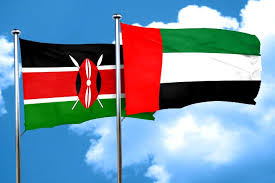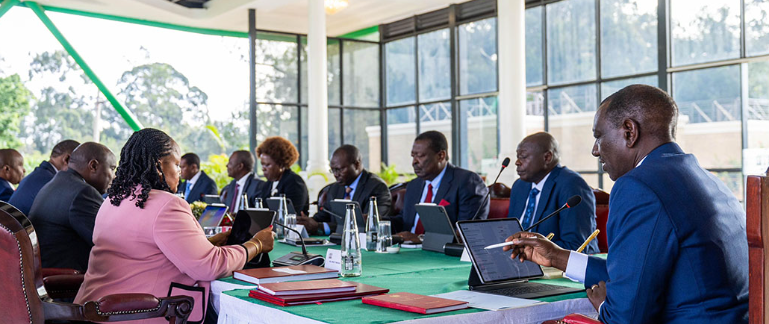- The Daily Brief, by The Kenyan Wall Street
- Posts
- What Austerity Means for Business, Del Monte Rallies Resources
What Austerity Means for Business, Del Monte Rallies Resources
Here's what you need to know to start your week


Direct to your inbox every Monday at 9am (EAT)
What's Inside
The Government’s Austerity Plans: Notes for Business Leaders

The government has announced of much-needed spending cuts to reduce the budget in light of the rejected Finance Bill 2024, and public outrage about wastage and corruption.
The idea of austerity to reduce budgetary pressure as loan obligations become due precedes the Finance Bill discussions, and the IMF’s structural adjustment programmes, which have reshaped how Kenya makes it fiscal policies.
Ideally, cutting the fat is meant to improve the government’s financial health so it can continue to do its primary job, while repaying upcoming loan obligations.
A genuine concern is what this means for the private sector, as the government is the biggest spender in the country.
It could mean even more unpaid bills, which has a direct impact on the private sector. As the primary spender in the economy outside of households, the government’s payments for goods and services is critical and feeds back to private sector growth.
But reduced government spending is not an entirely bad thing. First, it means that businesses will have to become more innovative and competitive to survive. The Darwinian nature of enterprise means that while some private players whose primary source of income is doing business with the government might fail, those that adapt will have an even better chance of success.
Private businesses now have a chance to explore the height of their business models. In addition to the reduced dependence on public spending, and the pressure to pay taxes to meet revenue targets, there’s also a lot of public goodwill for solutions to reduce unemployment and pay a living wage. Essentially, for sustainable business models.
The government’s design of austerity, from different statements in recent days, falls within the free-market preference where the government both lowers taxes and lowers its own spending. But since taxes are still high, it might lean more towards the Angela-Merkel model of high taxes and reduced government spending. The primary reason is debt obligations, and the pressure to both meet them while remaining sensible and responsive to the immediate needs of the population.
Most governments go into austerity when they find themselves unable to repay public debt, so it might be a good thing that Kenya has done it primarily due to public pressure, without an immediate risk of default. For businesses, it means that free market rules are now all the more important.
“In June, momentum in private sector activity declined, reflecting several concerns, top of the list being the proposed increase in taxes via the Finance Bill 2024, and the widespread protests in response, with unrest in Kenya restraining output and new business because customers delayed spending decisions in the face of such uncertainty.”
-Christopher Legilisho, Economist at Standard Bank
Del Monte Kenya Rallies Resources for Socio-economic Development

In a country where agriculture accounts for 20% of the GDP, the role of processing industries in socio-economic development remains invaluable. Not only do such industries drive macroeconomic figures up, they also impact individual livelihoods and the local communities that surround them.
Fruit-processor, Del Monte Kenya, has been a major player in the Kenyan economy since 1965. Well-known for its pineapple farms in Thika, the firm has recognized opportunities for improving the lives of its workers and the local communities by actively engaging in the provision of amenities.
By empowering communities around them, Del Monte Kenya has solidified its position as a top exporter of pineapple products to the global market. In 2023, the company exported 75,000 metric tonnes of its products abroad through the port of Mombasa.
Read More.
Don't forget to attend these events...
Name | Location | Date |
|---|---|---|
Finnovex Southern Africa | Johannesburg | July 23-24 |
East African International Real Estate Expo | Nairobi | August 1-3 |
2nd Annual Women Who Build Africa (WWBA) Assembly | Nairobi | September 5 |
Angaza Forum | Nairobi | October 16-17 |
Headlines you might have missed
Interview of the Week
AZA's Head of Sales for Central & Western Africa Fatimah Gana-Mahmoud joined MTN Uganda and Airtel Uganda to address the challenges, brainstorm on the opportunities, and discuss the next steps private-sector players can do to address these issues.
Have a great week!





